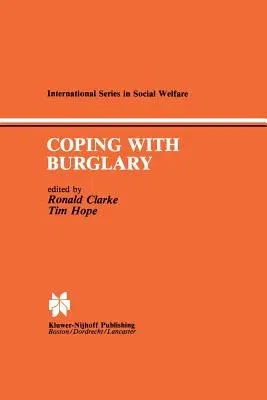R V G Clarke
(Author)Coping with Burglary: Research Perspectives on Policy (Softcover Reprint of the Original 1st 1984)Paperback - Softcover Reprint of the Original 1st 1984, 10 January 2012

Qty
1
Turbo
Ships in 2 - 3 days
In Stock
Free Delivery
Cash on Delivery
15 Days
Free Returns
Secure Checkout
Part of Series
International Social Welfare
Part of Series
International Series in Social Welfare
Print Length
261 pages
Language
English
Publisher
Springer
Date Published
10 Jan 2012
ISBN-10
9401089930
ISBN-13
9789401089937
Description
Product Details
Authors:
Book Edition:
Softcover Reprint of the Original 1st 1984
Book Format:
Paperback
Country of Origin:
NL
Date Published:
10 January 2012
Dimensions:
22.86 x
15.24 x
1.47 cm
ISBN-10:
9401089930
ISBN-13:
9789401089937
Language:
English
Location:
Dordrecht
Pages:
261
Publisher:
Weight:
367.41 gm

